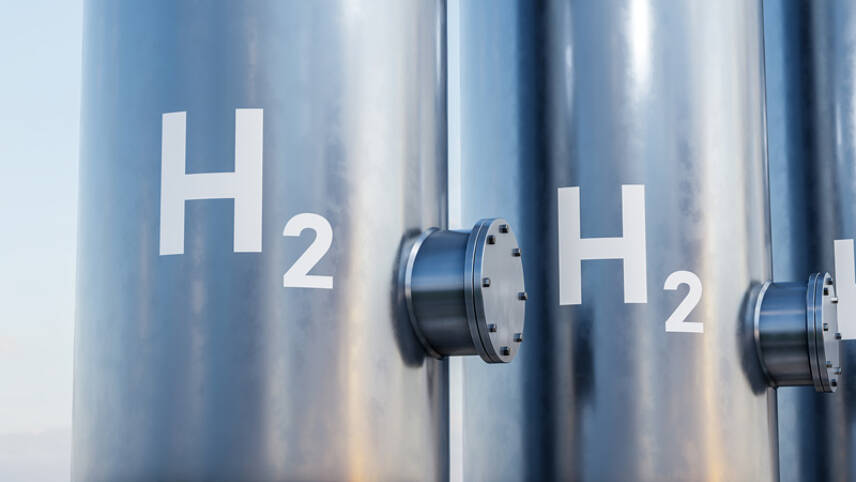Register for free and continue reading
Join our growing army of changemakers and get unlimited access to our premium content

Toogood, the co-chair of the Hydrogen Advisory Council and the chief executive of catalyst technologies at Johnson Matthey, was appointed to her Government post last summer following the publication of the Energy Security Strategy. The Strategy increased the UK’s 2030 target for domestic low-carbon hydrogen production capacity from 5GW to 10GW.
This week, Toogood published a set of recommendations on accelerating the growth of hydrogen production in the UK and on mapping out a course for the use of the gas in different sectors.
On the use of hydrogen, perhaps the most controversial topic is whether hydrogen should be used to heat homes and other buildings. The UK’s gas industry, including producers and distribution networks, argue that it should, as this will require minimal changes to infrastructure and maintain profitability for their sectors.
Environmental groups have argued that hydrogen should be reserved, in the main, for harder-to-abate sectors to maximise efficiency and emissions savings. This argument has been made also by dozens of MPs and backed up by research from bodies including the International Renewable Energy Agency (IRENA). There are also questions about how hydrogen blending would increase energy bills, placing even more burden on families and businesses amid the price crisis.
Toogood sides, in her report, with the gas industry on this topic. She recommends that the Government takes a ‘strategic decision’ to support blending of up to 20% this year, to enable blending at scale from 2025.
The report states: “Blending potentially aids investment, reduces emissions, enables supply and demand to be balanced and facilitates early experience with hydrogen, including in the gas National Transmission System, subject to satisfactory demonstration of the safety case. Blending is essential in the near term to enable the hydrogen economy to meet its targets and achieve critical mass.
“Blending does more than balance supply and demand to unlock the growth of the UK hydrogen economy. Hydrogen blending alone could support up to approximately 5GW of hydrogen production near term and has the lowest risk profile of off-takers.”
The report states that, at the moment, the Government is “strongly emphasising” a need to prioritise industrial customers over gas networks. Toogood argues that customers seeking hydrogen for blending should not be given preferential treatment over industrial customers, but argues that blending customers could provide long-term, low-risk certainty for offtake.
Regarding other hydrogen use cases, Toogood is arguing that clear, time-bound numerical targets for the use of hydrogen is needed for sectors including transport. MPs on the Transport Committee notably recently wrote to the Government urging it to go beyond its “tech-agnostic” approach and set clear targets for the adoption of options such as hydrogen.
Green economy response
As one would expect, the Energy Networks Association, which represents network operators including gas, has welcomed the report’s recommendations.
The Association’s director of gas, James Earl, said: “Network operators are working hard to provide industries, businesses and homes with a choice of low-carbon energy, but they need certainty around investment, system requirements and planned commercial arrangements to accelerate their plans. In particular, we agree with the report that a strategic decision to support hydrogen blending in 2023, urgent clarity on what the shape of the decision on hydrogen for heat in 2026 will be and clarity on the timeline around funding allocation rounds are crucial if gas network operators are to maintain the necessary pace.
“With certainty and appropriate funding models in place, our gas members can move forward with the planned development of the infrastructure which will enable the scaling up of the hydrogen economy and delivery of a net-zero energy system.
“It’s clear we can’t just tinker with one or two parts of the system – we need a transformational push, directed by a clear vision of what the whole low-carbon energy system will look like. Hydrogen deployment, the development of renewables and the adoption of technologies like heat pumps are all essential to this vision.”
The Association for Renewable Energy and Clean Technology (REA) has also welcomed the report. Policy director Frank Gordon said the demand for “blending, heating and transport” needs to be “stimulated” as soon as possible.
Gordon said: “The Hydrogen Champion Report highlights the need for greater clarity on upcoming policy decisions for hydrogen users, funding available, and overall delivery of the hydrogen roadmap to 2030 and beyond. This is something that the REA has been calling for, and industry urgently needs…Although government must now take the lead to assure the market, industry stands ready to deliver the UK’s hydrogen ambitions.”
However, thought leader Michael Liebrich took to LinkedIn to call blending low-carbon hydrogen into gas grids “a colossally wasteful thing to do”.
“Basically you go to all the cost, effort, leakage risk [and so on] of making clean hydrogen, and then do a bunch of low-value things with it,” he wrote. “Taxpayers and ratepayers should rise up against this.”
Liebreich’s alternative to gas networks as early market adopters of clean hydrogen is chemicals firms. They could use it, he argued, to displace the use of fossil fuels in producing fertilisers and petrochemicals.


So nice to see that Ms Toogood is a chemistry graduate, in a scientific environment, as well as business.
Faith restored!!!!
Hydrogen in a heating capacity sounds very appropriate, but molecule for molecule, it is far less useful than methane.
Yes, the CO2 is noted, but let us keep a balanced view.
We may also note that hydrogen does not occur naturally, as does methane, and unless produced by renewables (grab them when you can get them), has to be manufactured, nuclear perhaps via electrolysis), with a cost penalty.
There is no free lunch in this world!